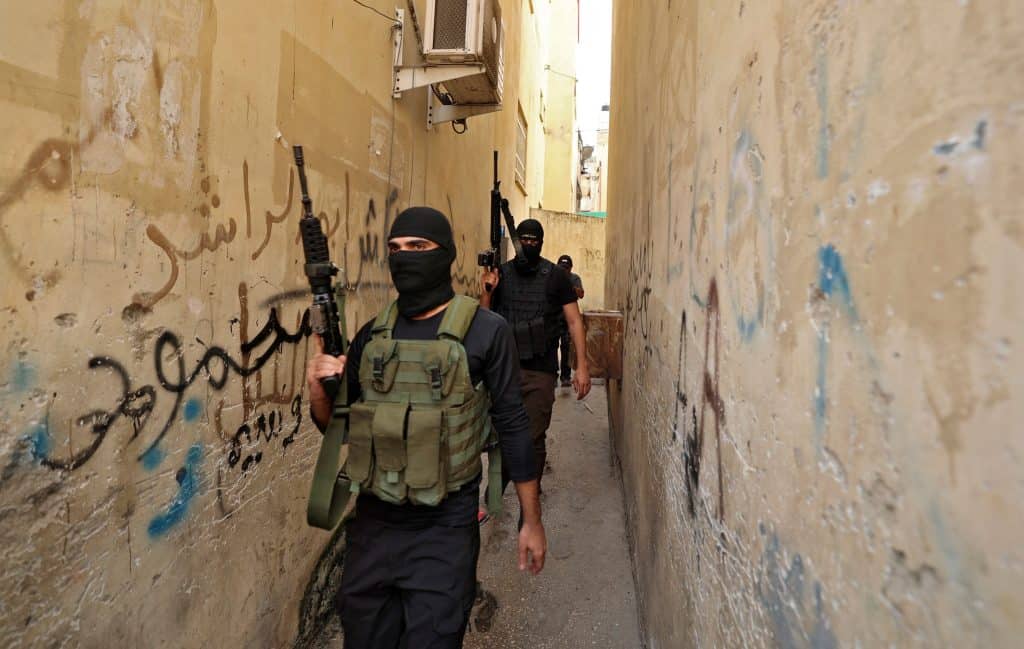
Shortly after 1:00 am local time on July 3, the Israeli military began an operation targeting the city of Jenin in the northern West Bank. This area is a hub for various armed Palestinian organizations, many of which are designated as foreign terrorist groups by the United States and other Western nations. While the operation succeeded in seizing weapons, explosives and destroying headquarters operated by nefarious actors such as Islamic Jihad, it is important to acknowledge the military action in Jenin is merely a provisional measure to tackle the ongoing violence.
The persistent crises in the West Bank has gone on for more than two years. It is not a coincidental occurrence, nor is it confined to Palestinian and Israeli parties alone.
Due to various reasons, such as arbitrary imprisonment of political opponents, financial instability, corruption, and more, Palestinian Authority (PA) president Mahmoud Abbas is losing popularity among West Bank residents. The PA’s bad governance enables Iran-backed terrorist groups to establish and spread throughout the West Bank, particularly in Jenin and Nablus. This is causing a dramatic escalation in terrorist attacks against Israelis compared to previous years.
Speaking to FDD’s Long War Journal, an Israeli security official expressed concerns about the failing state of the Palestinian Authority. The official emphasized that the responsibility for Jenin was transferred to the Palestinian Authority during the Oslo Accords and that they are expected to govern and enforce law and order in their territory. However, if they fail to do so, Israel will be compelled to take action.
“The responsibility for Jenin was transferred to the Palestinian Authority in the 1990s in an agreement that was signed at the White House. We expect the Palestinian Authority to govern their people and territories and to enforce law and order in their jurisdictions. If they won’t, we will,” the official said.
The instability within the West Bank is not solely attributed to the PA’s poor policies and corrupt behavior, as domestic and foreign actors contribute to the problem.
In August 2022, Iran insinuated its participation in the 14-month-long rebellion. Hossein Salami, the commander-in-chief of the Islamic Revolutionary Guard Corps (IRGC), echoed a 2014 statement by Iranian leader Ali Khamenei, saying that the West Bank is being armed similarly to Gaza.
Later, in April 2023, Salami suggested that Iran may be supporting West Bank terrorist groups. “Invisible hands have armed the West Bank, and you [now] see modern automatic rifles and automatic weapons in the hands of the Palestinians,” he said.
Other actors, such as Lebanese Hezbollah, the Gaza-based Palestinian Mujahideen Movement, and the Popular Resistance Committees, are striving to either establish a foothold in the area or clandestinely deliver weapons to bolster armed factions.
Even though the recent Israeli military operation in Jenin likely succeeded in diminishing armed groups’ capacity to launch assaults, it is not a feasible solution to address the root cause of the conflict. The PA’s slow response to significant issues such as the growth of Iran-backed groups in the West Bank has resulted in their persistence, leading to a critical juncture where the governing authority has become almost irrelevant. To secure its existence, the PA might be more willing now than in recent years to explore avenues that could have undesirable implications for Israel, including forming a unity government with Hamas in the West Bank.







